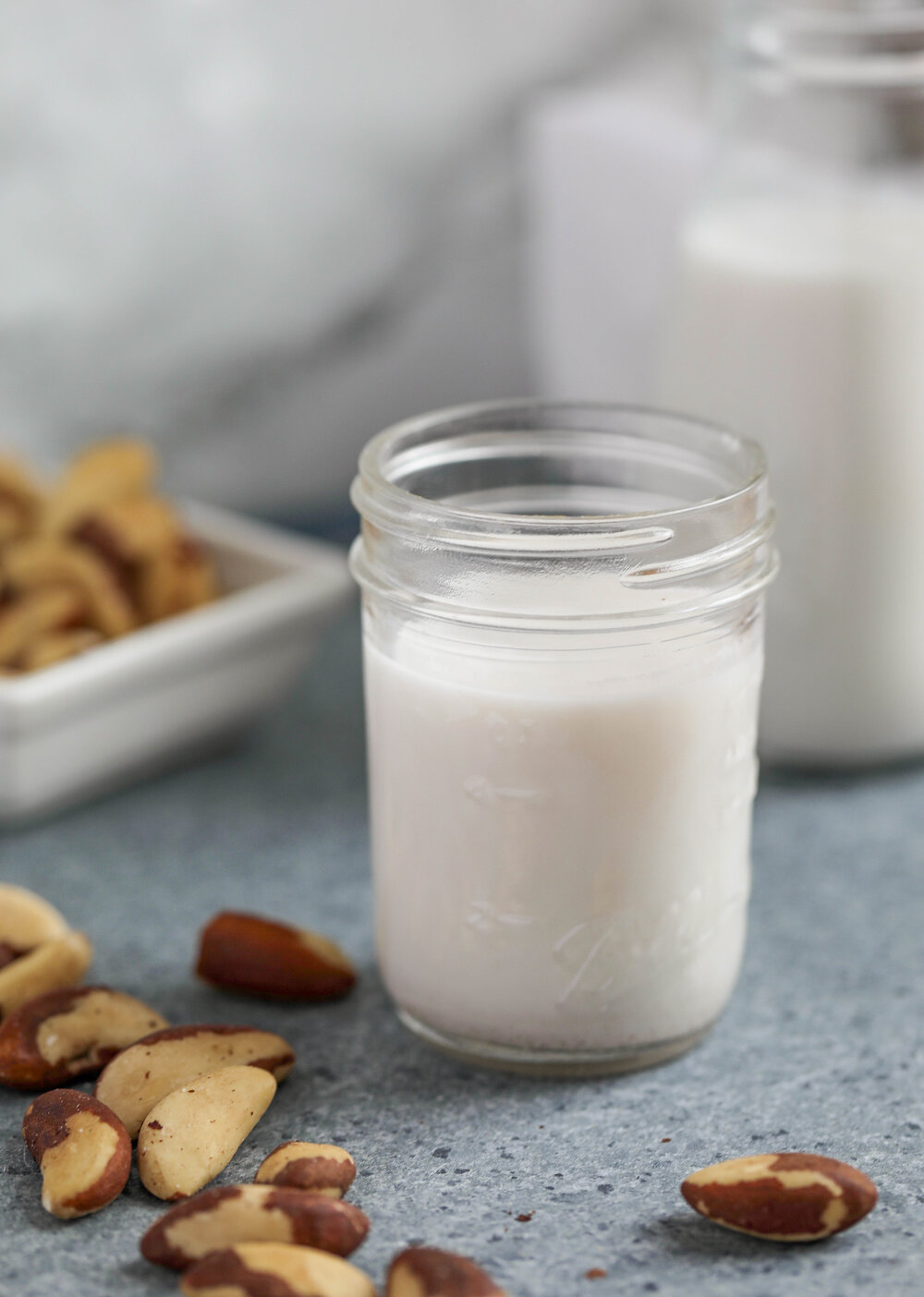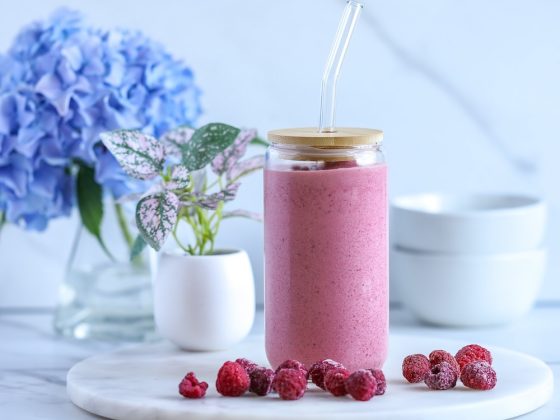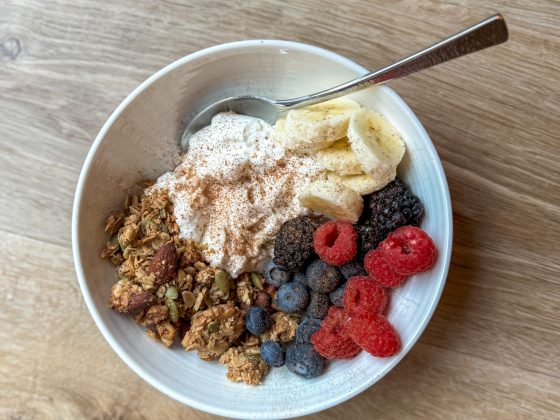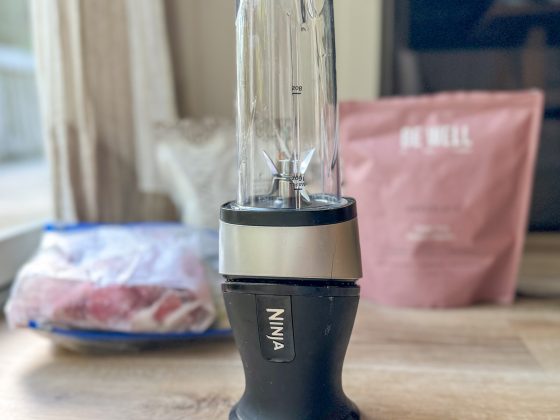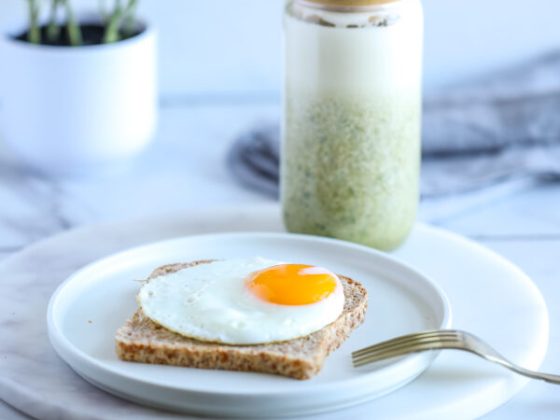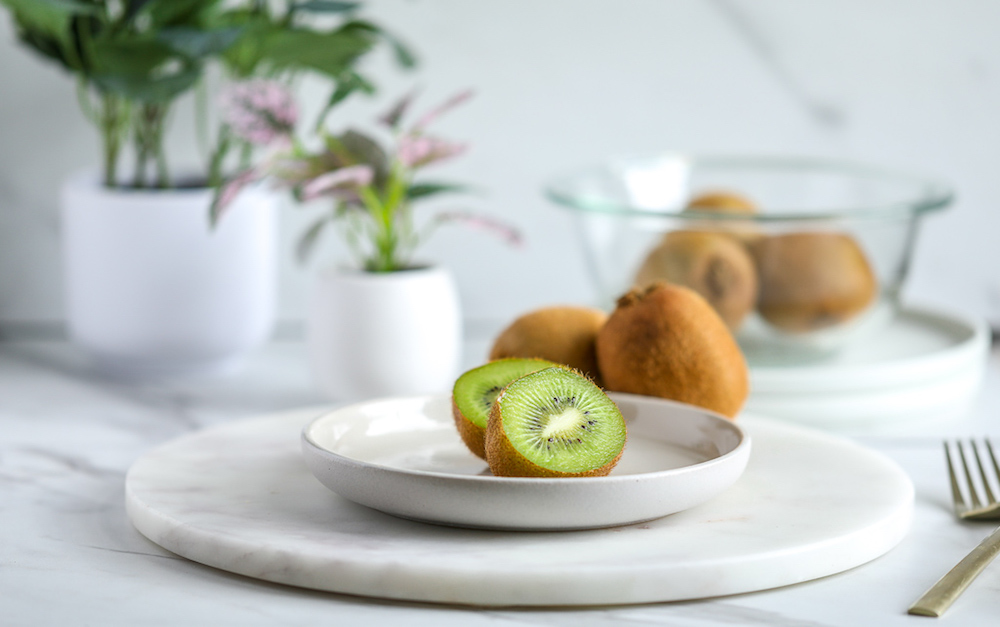Being a former health coach and the founder of a natural foods company, I often have conversations centered around well, food and nutrition. As non-judgmentally as possible, I make the case against popular packaged food items, what is hiding in these products, and why one should not be consuming them. But in all of my conversations, I have never discussed baby food and formula. Which is why I was at a loss (and frankly horrified) when I saw the list of ingredients in a popular baby formula a friend was forced to buy because there are not many healthy options out there (unless you buy from a completely different country!). One ingredient that particularly caught my eye: carrageenan.
The first time I ever heard of carrageenan was immediately following my shift to a dairy-free lifestyle. Organic almond and coconut milks quickly became new kitchen staples, and I had confidence in the fact I was doing my health a favor. Little did I know there was an ingredient lurking in these items (and many more “health foods”) that was likely contributing to inflammation and damaging my digestion. This taught me that just because something is labeled “organic” or “natural” does not necessarily translate to healthy. Carrageenan is a prime example of an ingredient found in those packaged foods marketed to be beneficial, and if you are purchasing any of these products, there is a good chance you (or your child) might be consuming it too.
What Is Carrageenan And How It Is Used
At first, carrageenan seems harmless. Derived from red seaweed, it is often disguised as a “natural” ingredient. Carrageenan’s unique chemical structure makes it an effective emulsifier, binder, and thickening agent, and therefore is widely used in both the food and pharmaceutical industries. It can be found in many milk substitutes, coffee creamers, coconut waters, and yogurts, and is even hiding in baby formula, deli meat, supplements, and toothpaste.
In our society, its use in food dates back to the 1930s, and with the rise of processed foods – and more specifically no fat, low fat, and dairy-free foods – carrageenan became an ingredient to thicken, stabilize, and texturize. It offers no nutritional value or flavor, yet food manufacturers have found it to be an effective (and inexpensive) way to “improve” a product’s formation. In particular, it provides a “fatty” texture in no- low-fat foods; for those beverages that might separate (think nut milks), it is used as an emulsifier; it helps to preserve tenderness in processed poultry and other processed meats; it is found in liquid baby formula as a binder and thickener.
Is Carrageenan Harmful To Your Health?
There are two types of carrageenan: degraded, also known as poligeenan, and undegraded, or “food grade.” The difference is in how the seaweed is prepared. Degraded carrageenan is processed in an acidic solution and has a lower molecular weight, while its undegraded counterpart undergoes an alkaline procedure, resulting in what food manufactures argue to be both a natural and safe ingredient.
Since the 1960s, studies have shown that degraded carrageenan is not only damaging to the digestive system, but is highly inflammatory and carcinogenic as well. While degraded is not allowed in food, scientists and health advocates have raised concern for dietary-approved carrageenan for decades. The controversy has many layers. Whereas degraded and undegraded differ in molecular weight, sometimes it isn’t by much. Results of industry tests showed that every sample of undegraded carrageenan was contaminated with poligeenan, some containing up to twenty-five percent. Furthermore, research reveals that as the additive passes through the normal conditions of the gastrointestinal tract, it is exposed to an acidic environment that degrades its quality and leads to carcinogenicity. Back in 1972, the U.S. Food and Drug Administration encouraged restricting the use of dietary carrageenan, but the ban was never upheld. There has been a growing body of research released ever since, which continues to raise concern for the consumption of carrageenan. Despite these findings, it continues to be used for dietary purposes.
What The Research Says
For the past few decades numerous animal studies have linked food grade carrageenan to some pretty serious (and scary) health issues. In 2013, the Cornucopia Institute published this report, and it didn’t paint a pretty picture. The seaweed derivative was dutifully exposed, shedding some light on how harmful carrageenan can be. Here are some of the science-supported ways this ingredient could harm your health.
1. Carrageenan could cause inflammatory bowel disease
A major reason why doctors, scientists, and health advocates caution against carrageenan is due to its inflammatory effects in the digestive tract. Research has connected carrageenan to large bowel ulcerations, ulcerative colitis, and other forms of irritable bowel disease. These documented results provide strong claims that are difficult to deny. Additionally, this study speculates carrageenan could trigger Chron’s and colitis in people who are genetically predisposed to the disease.
2. Carrageenan could cause cancer
Many studies show that both degraded and undegraded carrageenan are carcinogenic. It promotes the growth of intestinal tumors and has been linked to colon, colorectal, and liver cancers. This study specifies that carrageenan causes colon abnormalities, which are a precursor to polyps.
3. Carrageenan could lead to the development of diabetes
Studies show that consuming carrageenan significantly impairs blood sugar tolerance by increasing insulin resistance and inflammation associated with diabetes. This finding also has implications for weight management as insulin plays a key role. Insulin is our storage hormone, and making sure we remain insulin sensitive is not only crucial for weight, but overall hormonal balance as well.
4. Carrageenan consumption leads to inflammatory effects
There has also been evidence of it contributing to “less serious” side effects. The report published by The Cornucopia Institute quotes consumers who were suffering from a variety of undiagnosed gastrointestinal symptoms: bloating, abdominal cramps, diarrhea and nausea to name a few. For years the source of their digestive distress went unexplained. Upon eliminating the ingredient from their diet, they experienced relief. This is likely tied to carrageenan’s inflammatory effect in the colon and intestines. Sometimes, low-grade inflammation produces certain signs and symptoms, but without knowing what to look out for, it can go undetected. Evidence clearly supports carrageenan’s pro-inflammatory nature, and in fact, researchers in the pharmacology industry have used carrageenan for decades to induce inflammation in laboratory animals to test the effectiveness of anti-inflammatory drugs. Lastly, carrageenan has also been characterized as an immunosuppressant.
So What Can You Do?
Should you avoid carrageenan? The short answer is yes. Although more evidence might be needed, human based studies are coming forward regarding its consumption, and the conclusions are still concerning. Bottom line? All of this being said, I still strongly suggest eliminating the additive from your diet altogether.
As always, be sure to read ingredients! Also be aware that as the backlash against carrageenan continues, food manufacturers might disguise the ingredient under another name. For example, Irish moss is alternatively used, which I have to say, sounds natural enough at first glance!
When it comes to your dairy-free milk substitutes specifically, I always encourage homemade. Real nut milk has minimal ingredients (ideally just nuts and water), and I promise it doesn’t take long.
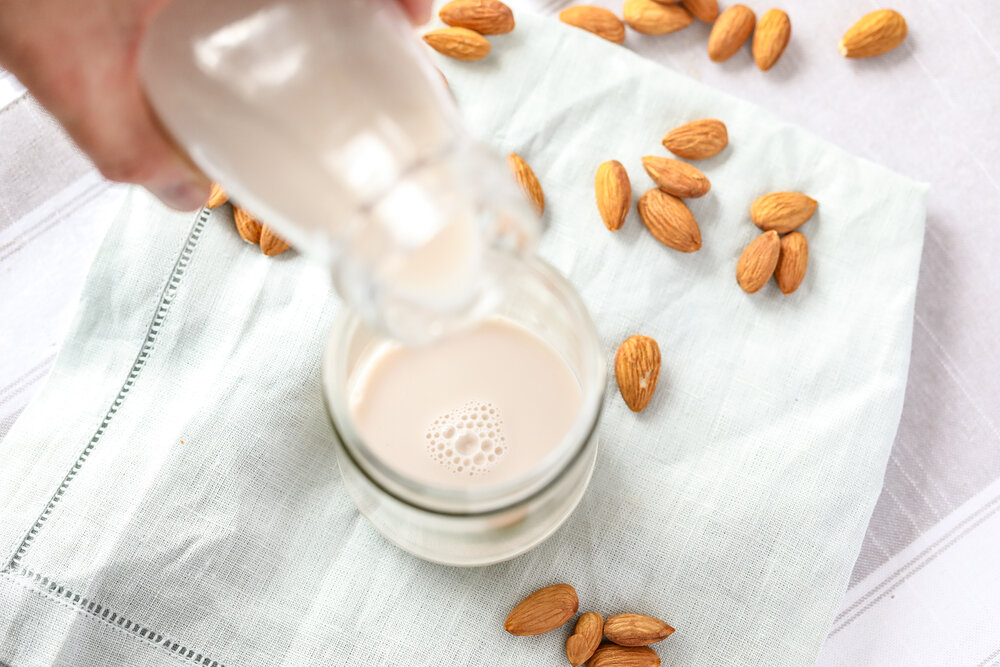
If you want to explore an option outside of almond milk, here is a concoction using Brazil nuts, which are an amazing source of selenium.
Homemade Brazil Nut Milk
Ingredients
- 1 cup brazil nuts, soaked at least 4 hours
- 4 cups filtered water
Instructions
- Place nuts and water in a high-speed blender and process about two minutes.
- Strain through a nut milk bag or cheesecloth, and transfer to an air-tight container. Enjoy!

